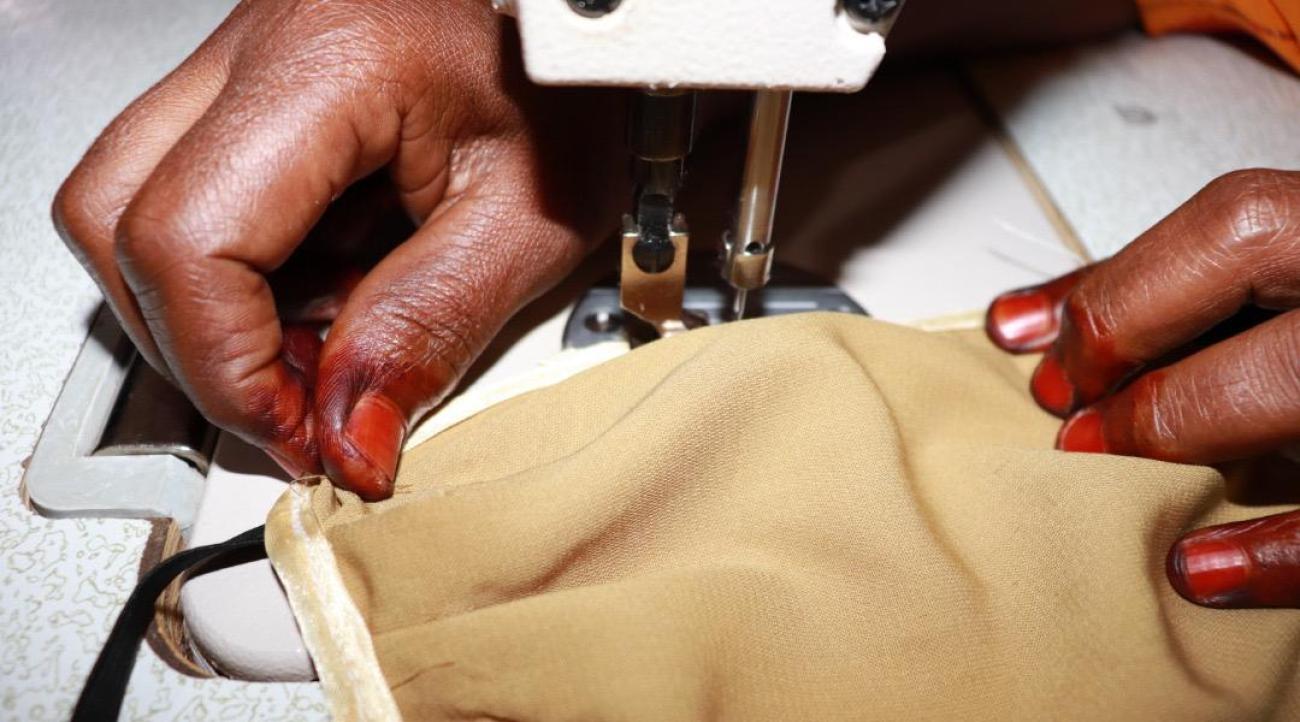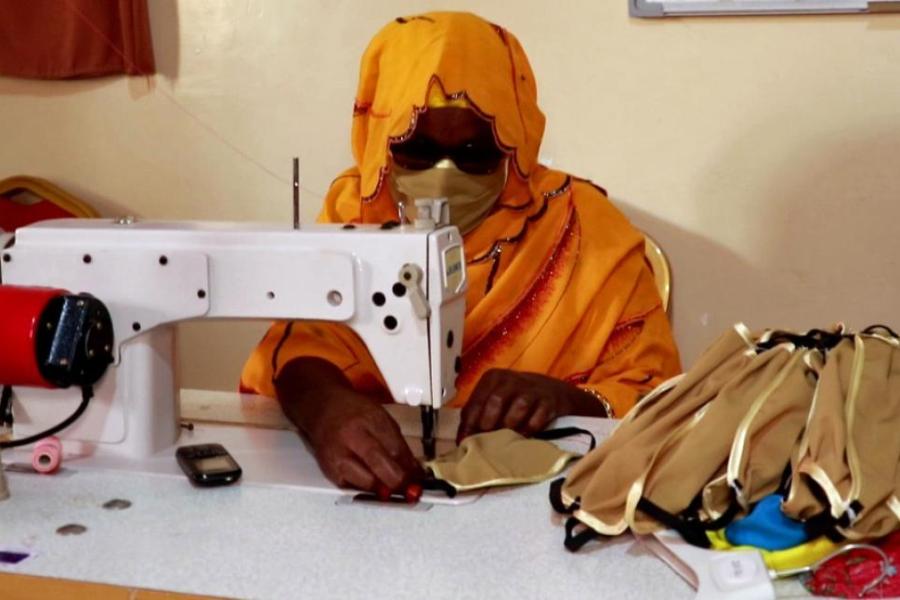Gender-based violence survivors making cloth face masks to protect their community

Empowered women are using their sewing skills to mitigate the spread of COVID-19.
“We have already produced almost 2,000 face masks,” said Fardosa* with pride in her voice. She is part of a small group of women working creatively to make cloth face masks to help protect families in nearby communities from COVID-19.
Fardosa is a survivor of gender-based violence and receiving support at a safe house run by Women’s Action Advocacy Progress Organization (WAAPO). The safe house, supported by UNICEF, seeks to equip the survivors with the knowledge and tools to support themselves. The women are offered health and legal services, psychosocial support and skills training to rebuild their lives.
The idea of making cloth masks took off when Abdullahi Mohamed Jama, the Executive Director of WAAPO, heard about people asking for masks at the nearby markets, pharmacies and stores.

Homemade face masks can help to prevent the spread of COVID-19 to others in situations where it’s difficult to maintain physical distance. Wearing one is an additional step, together with other critical prevention measures, such as hand washing and keeping a physical distance from others, in mitigating the spread of the virus.
“Our skills programmes are based on the needs of the community. We’ve been looking into starting income generating activities and I felt that making masks would be a great opportunity for the women at the safe house as well as those ready to return to the community,” Abdullahi said.
The women interested in sewing were asked to produce a sample of a cloth face mask. Based on the samples, 17 women were selected to take part in the activity. “We provided them with the materials and the sewing machines – and they jumped at the opportunity and started producing masks,” he explained enthusiastically.
Initially, the masks are being distributed to the communities for free.

WAAPO/2020
“Thanks to these hardworking women, my children and I were given 16 masks,” said 29-year-old Fatuma in a camp for the internally displaced in the neighbourhood. “I know that they help to protect me and the children from the virus and I wear one when I’m shopping, visiting family members or assisting people in my neighbourhood. When I first started using a mask, my mother was against it. She was worried I’d be stigmatized. But when I explained the benefits of wearing one, she agreed that it’s important to wear one and now has masks at her disposal,” Fatuma elaborated.
"It’s about much more than business. We care about one another here and want to find ways of keeping our loved ones, neighbours and communities safe – and making these masks is a way for many of the women to give back to the community.”
Abdullahi Mohamed Jama, Executive Director of WAAPO
In the coming weeks, some of the women at the safe house will start selling them at local markets at affordable prices.
“We want to empower these women and inspire them to look for opportunities like these to support themselves and their families while providing critical products and services to the community,” said Abdullahi.
“But it’s about much more than business. We care about one another here and want to find ways of keeping our loved ones, neighbours and communities safe – and making these masks is a way for many of the women to give back to the community,” he added.
* Fardosa’s name has been changed to protect her identity.
Link to original story.



